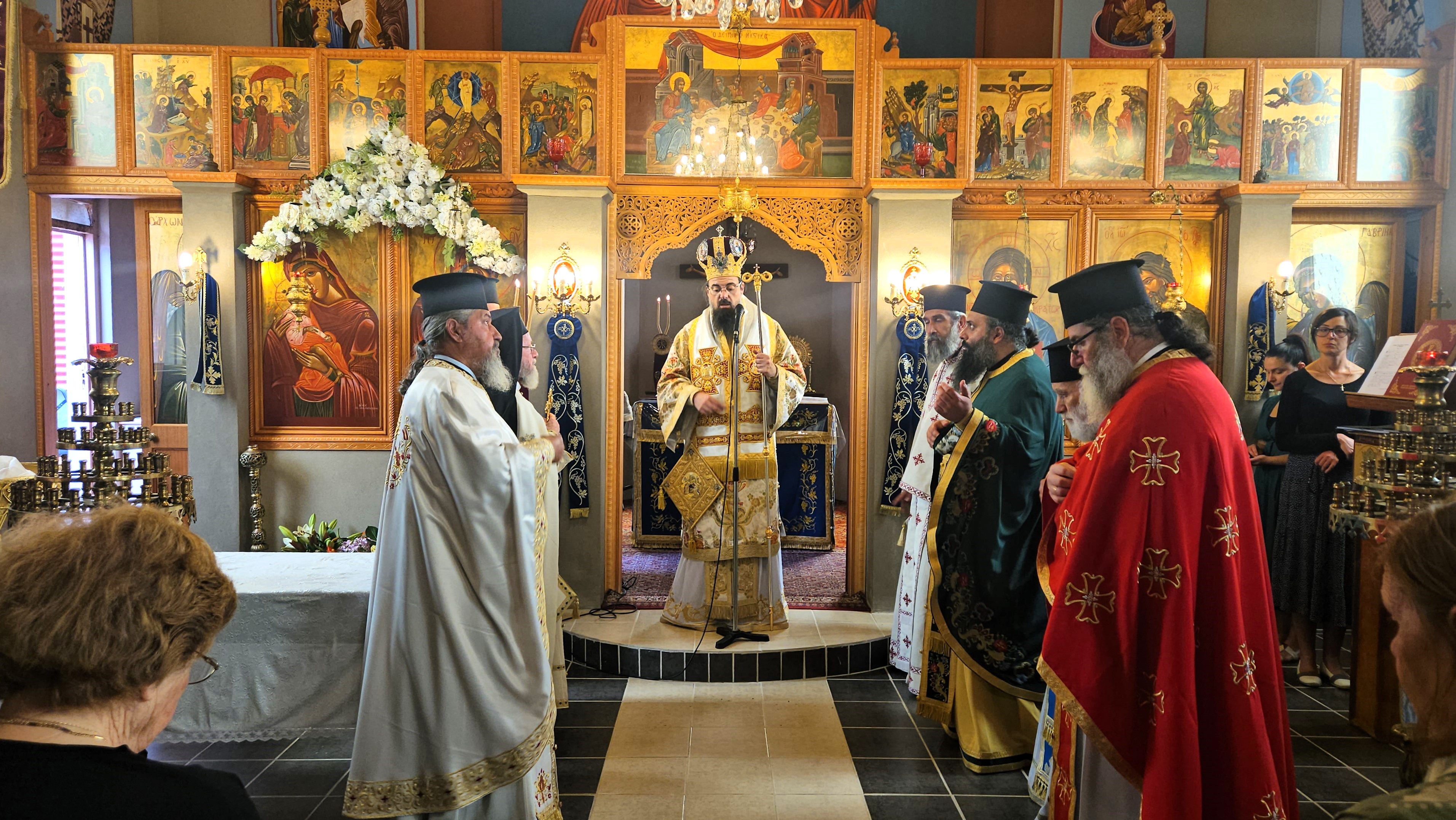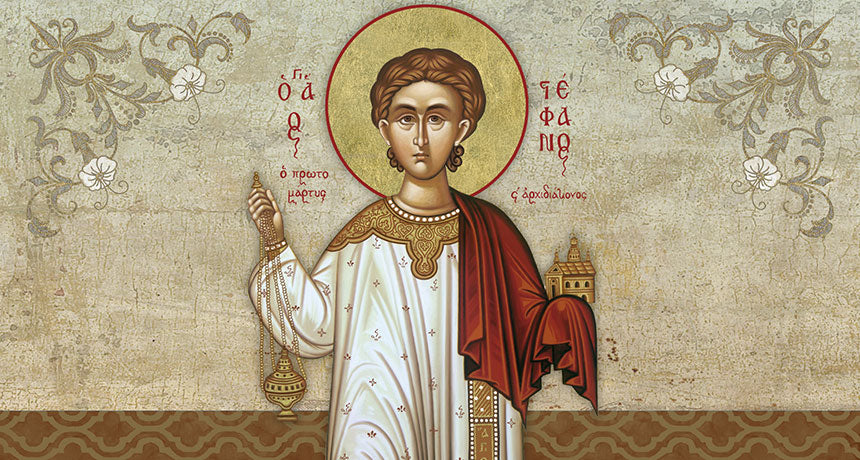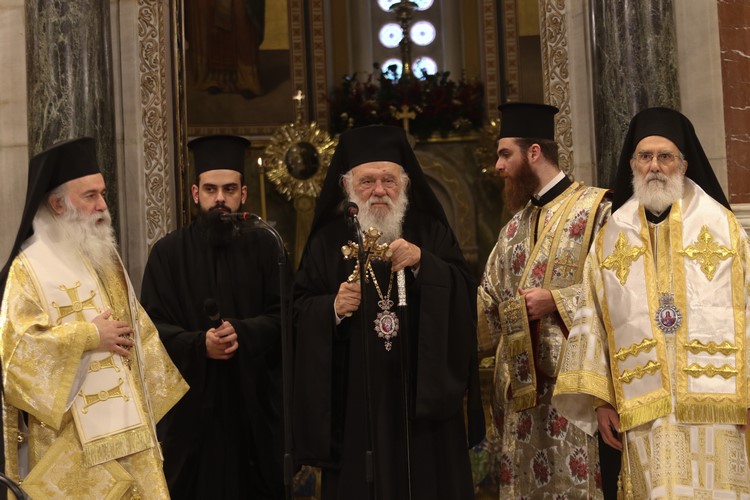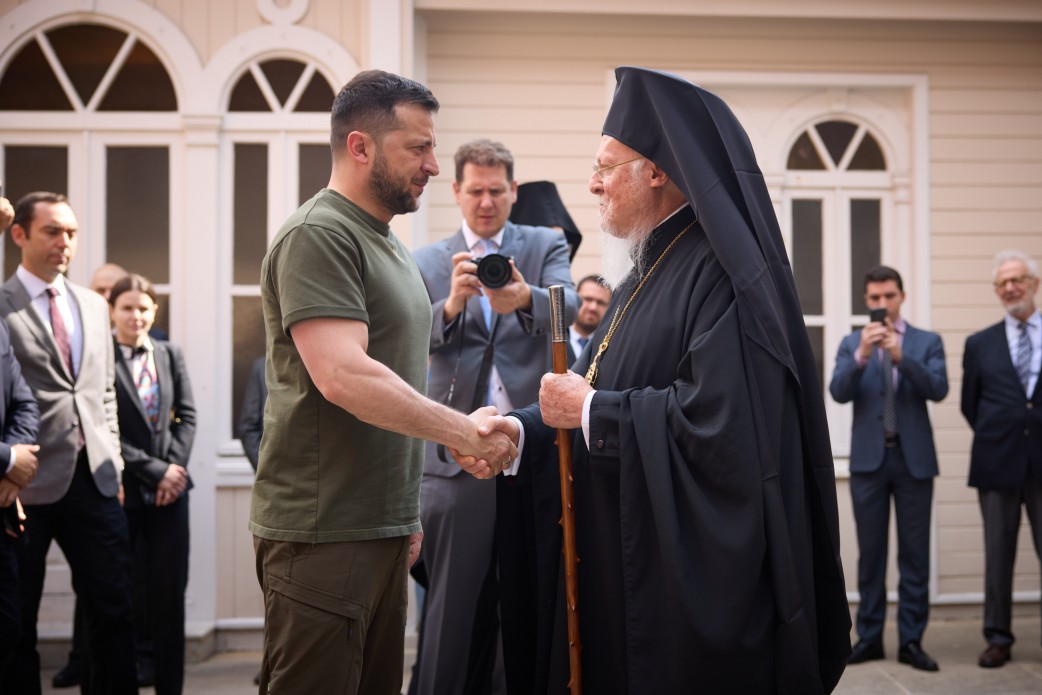Holy and Great Saturday
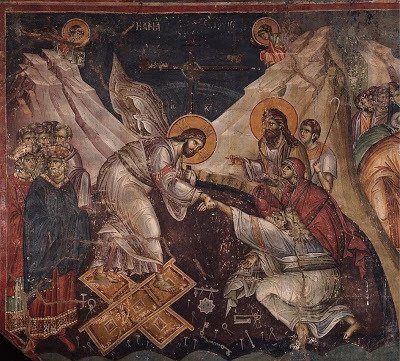

On Great Saturday we celebrate the entombment of the Lord by Joseph and Nicodemus, as well as His descent into the dark kingdom of Hades. When the Lord died, as a man, and His Soul was separated from His Body, then His Body, from which the Divinity of the Lord did not separate, was placed in a tomb; while His Soul, also united to His Divinity, descended into Hades, and conquered it, liberating those souls which were kept there. On the third day His Soul was united again with His Body and His Body rose from the dead.
Therefore both Hades and Death were conquered. Hades was conquered by the Soul of the Lord, and Death by His Body, for the two were not alone, but united with His Divinity. This Soul and this Body were not the soul and body of a common dead person, but the Soul and Body of God incarnate. For this reason neither Hades was able to hold in bonds this Soul, nor was Death able to hold and deliver to corruption this Body.
We therefore celebrate on Great Saturday the entombment of the Body of the Lord and the descent of His Soul, both remaining united to His Divinity, so that He may proclaim liberty to the souls held in the kingdom of Hades. At the beginning of the Matins Service we chant the Apolytikia “The Noble Joseph”, “When You Descended into Death”, “The Myrrhbearers”, “The Choirs of Angels Were Awe-Struck”. Then the Canon of the day is chanted, which has eight Odes, and begins with the Irmos “Wave of the Sea”. The acrostic is “And today on the Sabbath I sing greatly.” This acrostic is a part of the acrostic of the Canon of the previous day. The entire acrostic therefore is “Before the Sabbath and today on the Sabbath I sing greatly”.
After the ninth Ode the so-called “Lamentations” are chanted in three parts; these short troparia are much beloved by the people. It is not known who composed these “Lamentations”, and there are many various versions. After the “Lamentations”, the Evlogetaria are chanted, followed by the Stichera of the Praises and also the Doxology. After the Doxology, there is an exit from the church for a procession while bearing the “Epitaphion” and the sacred Kouvouklion, during which is chanted “The Sun Was Hid”. Finally, when the people return to the sacred church, the troparia “When You Descended into Death”, “The Myrrhbearers” and the “The Noble Joseph” are chanted. Then is read the passage from the book of the Prophet Ezekiel (37:1-14), the Epistle (1 Cor. 5:6-8 and Gal. 3:13-14), and the Gospel (Matt. 27:62-66).
As we have previously said, all the of the above takes place during Matins of Great Saturday and is chanted on the evening of Great Friday. On the day of Great Saturday the Vespers for Pascha is performed, which is joined together with the Divine Liturgy of Basil the Great. This Service has a resurrectional and festive character, because it is, as I said, the Vespers of the great and world-saving feast of Pascha and is therefore an introduction to it. The people call it the “First Resurrection”. Most beautiful and solemn is the hymn which is chanted that takes the place of the Cherubic Hymn, the troparion “Let All Mortal Flesh Keep Silent”. Today this Service is not chanted in the evening, but in the morning hours of Great Saturday.
Source: Η Μεγάλη Εβδομάς μετά ερμηνείας, 9η έκδ. Αθήνα, Αποστολική Διακονία της Εκκλησίας της Ελλάδος, 2002. Translated by John Sanidopoulos.

